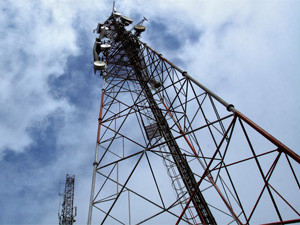
Telkom is considering legal action to stop the Independent Communications Authority of South Africa's (ICASA's) planned spectrum auction, following a legal challenge already launched by government.
"We have some fundamentally different views about the approach ICASA has adopted on the matter of spectrum and the resultant actions that have been taken," Telkom's group executive for communication, Jacqui O'Sullivan, told ITWeb.
"We are currently considering the legal merits of ICASA's approach and are exploring our own potential legal action with regard to the ICASA process."
This after telecommunications and postal services minister Siyabonga Cwele earlier this month filed papers in the Pretoria High Court in an attempt to stop ICASA's plans to auction off spectrum to telecoms operators.
On 15 July, ICASA issued an invitation to apply (ITA) for licences for spectrum in the 700MHz, 800MHz and 2.6GHz bands, to be used to provide mobile broadband wireless access services in SA. However, the Department of Telecommunications and Postal Services (DTPS) opposed the ITA, saying it had been issued "without consultation and prior notification to government as the policy-maker".
The DTPS maintains the spectrum auction cannot take place before the department has finalised its integrated ICT policy White Paper, which should outline clear government policy views on national frequency spectrum.
"Maybe from government's point of view, as well as some of the players, ICASA put the cart before the horse in terms of the ITA," says George Kalebaila, IDC senior manager for telecoms, media and Internet of things in Africa.
"I think ICASA could have been more consultative before putting out the ITA. The ITA itself should not have been a bone of contention ? it should have been the process that paved the way for the actual spectrum to be issued."
Kalebaila suspects Telkom's challenge of the process might just be a matter of principle, but says it would probably make more sense for the telecoms operator to join the government litigation process instead of starting its own action.
"But one would hope it does not go that route [of court action] because at the end of the day, it's the consumers that are being disadvantaged," he adds.
Wait and see
Telkom says it is not initiating any legal action just yet as it is waiting for ICASA to respond to submitted queries on the auction first. The ITA invited interested parties to make enquiries by 4 August and promised to respond to these by 24 August.
"Should it be clear from those responses that ICASA plans to continue with the current ITA process, we would then need to consider the possible initiation of our own legal process. We would prefer to await the feedback from the regulator before discussing further detail on our concerns," O'Sullivan explains.
One of the major concerns raised by a number of Telkom's industry peers was the expense of the minimum bidding price of R3 billion for the various spectrum lots.
"I think the reserve price of R3 billion closes off the process to a number of smaller players who might have wanted to participate. That is why some of the other operators like Telkom and Cell C believe the process is entrenching a duopoly in the market. Because honestly, a person who can fork out R3 billion is someone who already has that money available and is sure they are going to get return on investment from the purchase," says Kalebaila.
"I expected ICASA to be a bit more proactive and act in a way as to open up the industry to smaller players, but it seems the process is going to close off smaller players who wanted to play in this space."
He believes all those involved need to put their differences aside and act in the national interest.
"What is at stake here is the development of the spectrum and making cost-effective broadband available to the public. But it's not too late; maybe the process can be delayed a bit so the key stakeholders can come together to come up with an agreed process that can take our country forward."
Share